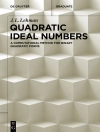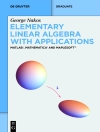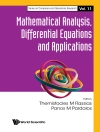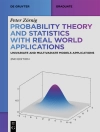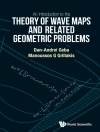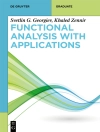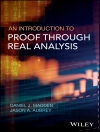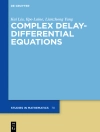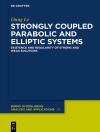The classic introduction to the fundamentals of calculus
Richard Courant’s classic text Differential and Integral Calculus is an essential text for those preparing for a career in physics or applied math. Volume 1 introduces the foundational concepts of ‘function’ and ‘limit’, and offers detailed explanations that illustrate the ‘why’ as well as the ‘how’. Comprehensive coverage of the basics of integrals and differentials includes their applications as well as clearly-defined techniques and essential theorems. Multiple appendices provide supplementary explanation and author notes, as well as solutions and hints for all in-text problems.
Table of Content
Partial table of contents:
The Continuum of Numbers, The Concept of Function, The Concept ofthe Limit of a Sequence, The Concept of Continuity.
The Fundamental Ideas of the Integral and Differential Calculus:The Definite Integral, The Derivative, The Estimation of Integralsand the Mean Value Theorem of the Integral Calculus.
Differentiation and Integration of the Elementary Functions: Maximaand Minima, The Logarithm and the Exponential Function, The Hyperbolic Functions.
Further Development of the Integral Calculus: The Method of Substitution, Integration by Parts, Integration of Rational Functions, Improper Integrals.
Applications.
Taylor’s Theorem and the Approximate Expression of Functions by Polynomials.
Numerical Methods.
Infinite Series and Other Limiting Processes.
Fourier Series.
A Sketch of the Theory of Functions of Several Variables.
The Differential Equations for the Simplest Types of Vibration.
Answers and Hints.
Index.
About the author
Richard Courant (1888-1972) obtained his doctorate at the University of Göttingen in 1910. Here, he became Hilbert’s assistant. He returned to Göttingen to continue his research after World War I, and founded and headed the university’s Mathematical Institute. In 1933, Courant left Germany for England, from whence he went on to the United States after a year. In 1936, he became a professor at the New York University. Here, he headed the Department of Mathematics and was Director of the Institute of Mathematical Sciences – which was subsequently renamed the Courant Institute of Mathematical Sciences. Among other things, Courant is well remembered for his achievement regarding the finite element method, which he set on a solid mathematical basis and which is nowadays the most important way to solve partial differential equations numerically.



